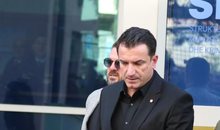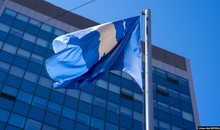
 Flash News
Flash News
Fire near the center for people with disabilities in Berat, suspected to be intentional
Internationally wanted for corruption, Loran Dusha extradited from Zimbabwe
Fire in Kavaja, a scrap metal collection point engulfed in flames
The appeal of the GJKKO leaves the seizure of Arben Ahmetaj's assets in force
Astrit Sinanaj is arrested in Tirana, he tried twice to kill a businessman
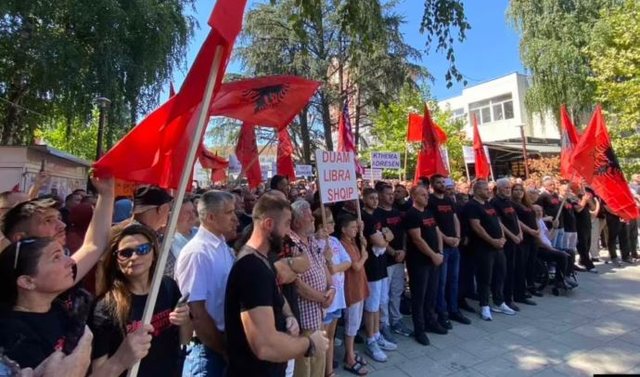
Hundreds of Albanians from the Preševo Valley in southern Serbia marched on Monday, as they said, against discrimination and in search of equality and rights for Albanians in Serbia.
One of the organizers of the march said that "from here we sent the message that Albanians want equality, that equality does not become injustice." The demands of the Albanians are shameful, the silence of the state and the injustice it is doing to the Albanians is also shameful."
She said that the demands are the return of the court, the implementation of the agreements so far, the return of the addresses of Albanians in Presheva, Bujanoc and Medvegja, the recognition of school diplomas and the integration of Albanians in state bodies.
Serbia has repeatedly denied that Albanians in this country are discriminated against.
They marched through the center of the city of Presheva near the institutions holding placards with inscriptions such as: "Stop selective passivism", "We want Albanian books" and "return the address", as well as wearing jerseys with the inscription "For identity and dignity".
The march, which was led by the only representative of Albanians in the Serbian Parliament, Shaip Kamberi and the mayor of Presheva, Ardita Siani, stopped near the Presheva municipality building, where the Albanian national anthem was sung.
This is the second protest of the Albanians of the Valley in the last two months, after the one in Bujanoc in August.
According to the latest population census, Albanians are the fourth largest minority in Serbia, namely 61,687 Albanians live in this country.
The representatives of Preševo, Medveđa and Bujanovac – municipalities also known as the Preševo Valley – have often complained of being discriminated against by the authorities in Serbia.
A problem faced by the Albanians of the Presheva Valley is the non-recognition of university degrees obtained in Kosovo, despite the fact that Kosovo and Serbia have reached an agreement on this in the dialogue mediated by the European Union.
They have several times reached agreements on the mutual recognition of university degrees, while in 2020 they reiterated their commitment to the recognition of professional degrees and certificates, but so far no steps have been taken to implement them.
Meanwhile, at the end of last year, the Albanians in the Valley also complained about an increase in the number of deactivations of their addresses by the Serbian police, accusing it of having deleted them illegally, to deny them basic rights.
The problem of deactivating addresses is mentioned in the European Commission's report on Serbia in 2022, in the part that deals with respecting the rights of minorities.
After the August protest in Bujanoc, the Government of Serbia said that it was an attempt by the Government of Kosovo, led by Albin Kurti "to destabilize the region".
The Serbian government rejected the accusations of MP Kamberi for discrimination against Albanians and insufficient representation in institutions.
In 2001, an agreement known as the Consular Agreement was reached for the demilitarization of the Liberation Army of Presevo, Medvegja and Bujanovac (UÇPMB) and for the integration of the Albanian minority through a democratic process.
In July 2013, the Government of President Aleksandar Vučić approved the seven-point plan, which was almost the same as the previous agreements.
The Serbian government said in August that that plan was interrupted by the then Albanian deputy in the Serbian Parliament, Riza Halimi, in November 2013./ REL
Latest news

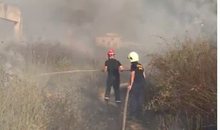

Ja çfarë i ndodh organizmit tuaj nëse konsumoni çdo ditë limon
2025-06-14 16:16:23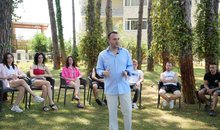
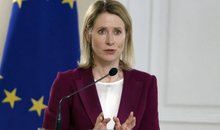
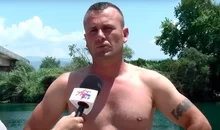
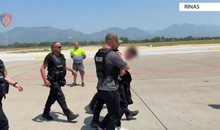
Internationally wanted for corruption, Loran Dusha extradited from Zimbabwe
2025-06-14 15:30:04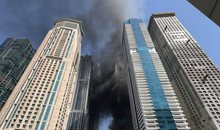
VIDEO/ Dubai skyscraper engulfed in flames, 3,800 residents evacuated
2025-06-14 15:16:49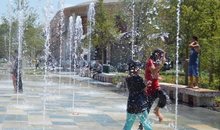
With these 5 ways, you can cope with the heat even at home
2025-06-14 15:08:46
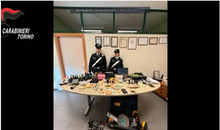
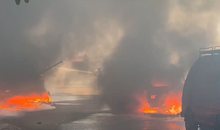
Fire in Kavaja, a scrap metal collection point engulfed in flames
2025-06-14 14:43:40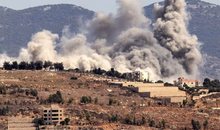
Israel eliminates 9 scientists of the Iranian nuclear program
2025-06-14 14:33:34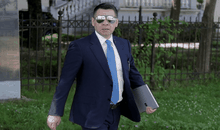
The appeal of the GJKKO leaves the seizure of Arben Ahmetaj's assets in force
2025-06-14 14:17:14
Less appearance, more connection: How the way men love is changing
2025-06-14 14:16:13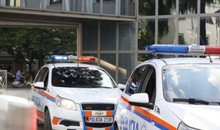
Astrit Sinanaj is arrested in Tirana, he tried twice to kill a businessman
2025-06-14 14:02:59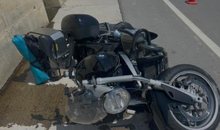
Accident on Arbri Road, two foreign tourists end up in Trauma
2025-06-14 13:37:03

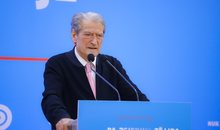
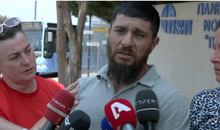
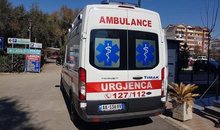
Tourist found dead inside apartment in Vlora
2025-06-14 12:46:40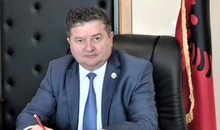
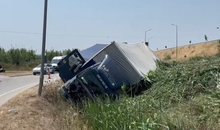
Accident in Levan, truck with kitchen utensils ends up in the canal
2025-06-14 12:12:57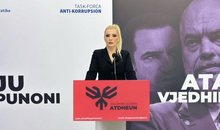

Clashes at the Order of the Psychologist, Treska declares the elections invalid
2025-06-14 11:45:55

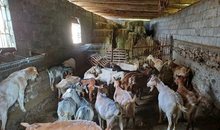
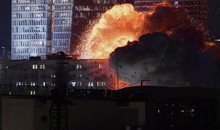
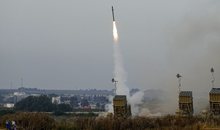

The weekend brings luck for this zodiac sign, a pleasant surprise is coming!
2025-06-14 10:34:31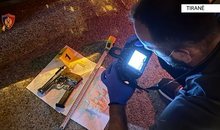
Caught with firearms and drugs in the car, two people arrested at "Ali Demi"
2025-06-14 10:25:17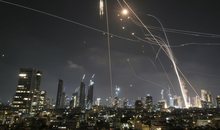
Analysis: Israel's attack on Iran, ignition of conflict in the Middle East?
2025-06-14 10:16:14
Gambling in a bar, the owner and the waiter are arrested in Divjaka (NAMES)
2025-06-14 10:07:27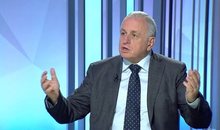
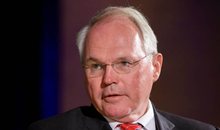
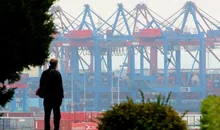
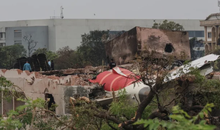

Tourist packages, how much does Albania "cost"
2025-06-14 08:58:23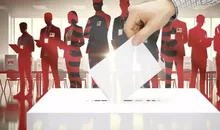
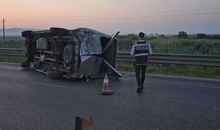

From sun to clouds, what will the weather be like this Friday in Albania
2025-06-14 08:19:49
Morning mail/ With 2 lines: What mattered yesterday in Albania
2025-06-14 08:08:49
CEC decides to limit spending on local election campaign in Kosovo
2025-06-13 22:54:43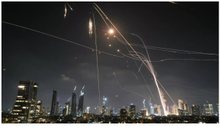
Israel confirms US support for the neutralization of missiles by Iran
2025-06-13 22:37:44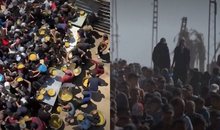

Foods you should avoid after your 40s for health
2025-06-13 22:05:07
Possessive and toxic, get to know the 3 most jealous signs of the horoscope
2025-06-13 21:51:58
Poland: A Russian plane violated our airspace!
2025-06-13 21:40:15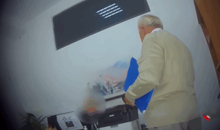
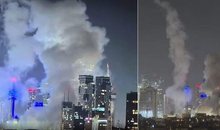
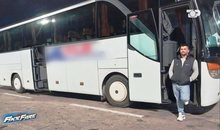
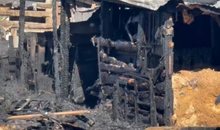
Tragedy in Kurbin/ Fire engulfs pig barn, 450 pigs burned alive
2025-06-13 20:40:44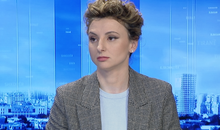
Xixho: Without functional democracy, EU integration remains an illusion!
2025-06-13 20:27:45
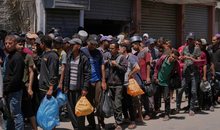
UN: Gaza aid group has failed in its mission
2025-06-13 20:04:32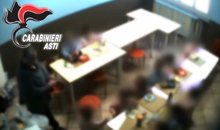

BIRN: Half of Albanians have a gross salary of less than 62 thousand lek!
2025-06-13 19:31:41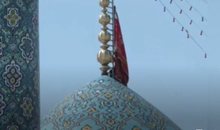
Revenge warned/ Iran raises red flag over mosque, consequence of Israeli attacks
2025-06-13 19:23:10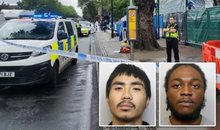
Albanian man killed in metro station, two Englishmen found guilty
2025-06-13 19:08:41
How recommended is a midday nap for health?
2025-06-13 19:01:58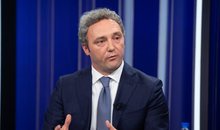
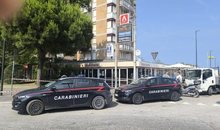
Serious in Italy/ Albanian stabs 23-year-old in Ravenna, escapes on motorcycle
2025-06-13 18:18:57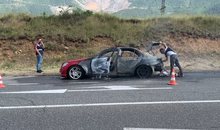
Car catches fire in Bulqiza, driver and passengers rescued
2025-06-13 17:59:20
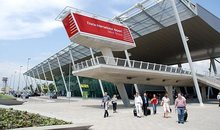
Attacks on Iran/ Tirana-Tel Aviv flights canceled, embassy closed
2025-06-13 17:35:45
Apple warns again: Don't sleep with your iPhone while charging!
2025-06-13 17:20:31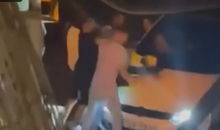
Albanian youth raped worker in Greece, surrenders to police (NAME)
2025-06-13 16:59:50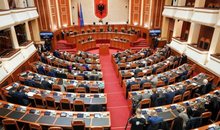
Plenary session in the Parliament on Monday, what will be discussed?
2025-06-13 16:42:10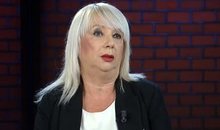
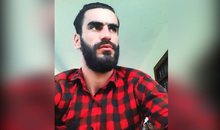
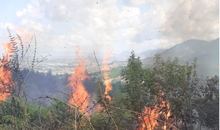
Fire in Berat, a bushy area is engulfed in flames
2025-06-13 16:06:18
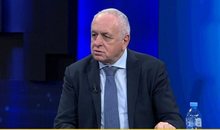
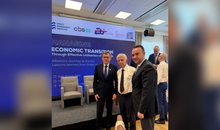

Israeli attacks, Trump calls on Iran: A deal must be made, before it's too late
2025-06-13 15:19:21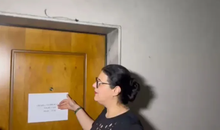

Israel's attacks on Iran raise oil prices worldwide
2025-06-13 14:56:37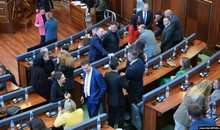
The Kosovo Assembly is not constituted even in the 31st attempt
2025-06-13 14:41:24
Euro hits 'bottom', European currency drops to new historic low
2025-06-13 14:30:28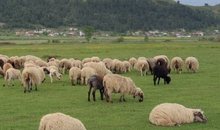
First outbreak of small cattle plague confirmed in Korça
2025-06-13 14:19:51
Kiara Tito "in mourning", experiences great pain: I will always miss your voice
2025-06-13 14:13:47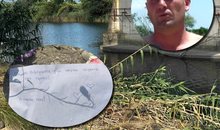
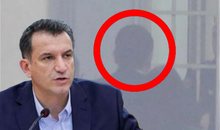

Trump warns Iran to accept nuclear deal before 'even more brutal' attacks
2025-06-13 13:55:25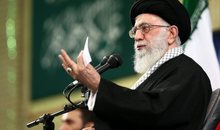
Iran appoints new commanders after Israel kills military leaders
2025-06-13 13:39:28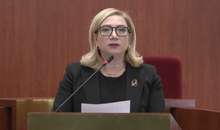
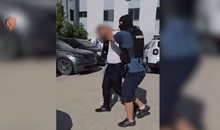
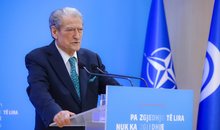
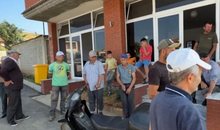
Maliq farmers protest
2025-06-13 13:03:07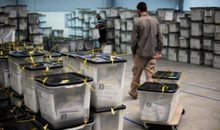
KAS accepts the DP's request, decides to recount the votes in Gramsh and Peqin
2025-06-13 12:46:14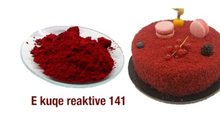

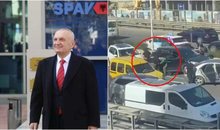
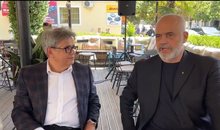
Bennett who sealed the political "deflowering" of SPAK
2025-06-13 12:21:27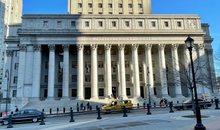
Lied to FBI about Charles McGonigal's connections, Former Diplomat Pleads Guilty
2025-06-13 12:10:56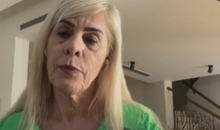
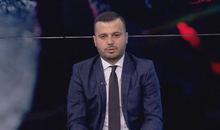
The strange world of justice
2025-06-13 11:55:10